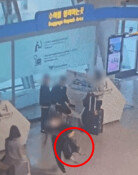N. Korea snubs Chinas bid to arbitrate 6-way talks
N. Korea snubs Chinas bid to arbitrate 6-way talks
Posted April. 23, 2014 05:59,
China has made many efforts to resume the six-way talks by visiting North Korea and the U.S., but Pyongyang is openly accelerating its preparation to conduct a fourth nuclear test on the contrary. This indicates that Chinas bid to persuade Pyongyang is not working.
Wu Dawei, Chinas chief negotiator for the six-way talks and special representative for Korean Peninsula affairs, visited North Korea from March 17 to 21. On April 7, the chief negotiators for the talks from South Korea, the U.S. and Japan met in Washington and discussed ways to display flexibility in conditions for the resumption of the six-way talks. Hwang Joon-kook, Seouls chief negotiator and new Special Representative for Korean Peninsula Peace and Security Affairs, visited China on April 11, the next day after his return to Korea, and held talks with Wu. On his visit to New York on Monday last week, Wu sought to study the possibility to resume the six-way talks with Glyn Davies, the U.S. chief negotiator.
Analysts say that despite these developments, the North`s seeking to escalate tensions by revealing its preparation for a nuclear test is due to internal factors within the Stalinist state. A diplomatic source in Seoul said on Tuesday, The North is amplifying the structure of tension with foreign countries to make internal consolidation in the wake of the first anniversary of its adoption of the policy to concurrently seek nuclear weapons and economic development. On March 31, the first anniversary day of the policys announcement, the Rodong Sinmun, the official daily of the ruling Workers Party, said in its editorial, We must solidly stick with the policy of concurrent pursuit as our lifeline, and robustly continue our strides toward the path of self-reliance. Saying that it cannot afford to succumb to the "U.S. imperialists pressure," Pyongyang clarified that it cannot accept denuclearization measures that other countries demand as preconditions for the resumption of the six-way talks.
Analysts say that although China directly persuaded North Korea with measures to resume dialogue that South Korea and the U.S. spearheaded to devise, Beijings arbitration has effectively failed. During his visit to North Korea last month, Wu only kept the schedule of "routine visits" including those to Mirim Horseback Riding Club and Meari Shooting Range, but had no chance to meet with his North Korean counterpart Kim Kye Kwan, first vice foreign minister. A source in Seoul said, With China having had no chance to hold an in-depth dialogue, Beijing cannot afford to find a breakthrough for resumption of the six-way talks.
However, it remains unknown whether North Korea will push ahead with a fourth nuclear test despite the risk of stalling Pyongyang-Being ties. Chinese President Xi Jinping maintains hardline stance toward the North Korean nuclear issue, stronger than his predecessor Hu Jintao. Soon after the Norths 2013 nuclear test, Beijing halted annual exchange visits of high-level officials with Pyongyang. When Pyongyang sent Choe Ryong Hae, chief of the North Korean militarys politburo in May last year, President Xi took North Korean leader Kim Jong Uns personal letter in one hand and did not even bother to open it, expressing his discontent.







